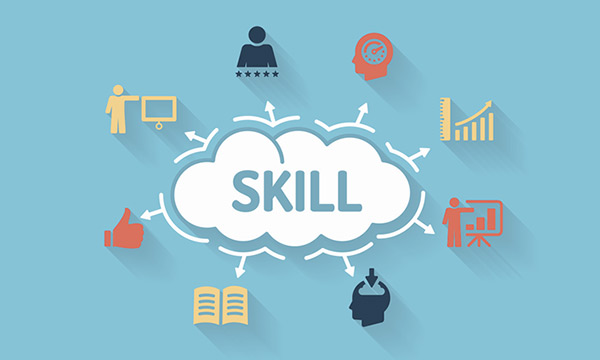Table of Contents
ToggleIntroduction
High-Demand Skills For Literature Graduates In 2024 Literature graduates frequently face a special problem in the ever-evolving global labor market: converting their academic knowledge into employable abilities that companies value. Although literature majors are usually thought of as having a passion for reading and writing, their coursework offers a multitude of transferable abilities that can be used in a range of professional settings.
It’s critical for literature grads to know which abilities are in high demand and how to use these competencies in their job hunt, especially because 2024 is quickly approaching.
1. Why Literature Graduates Are in Demand
Before we examine specific skills, it’s essential to recognize why literature graduates remain highly sought after in various industries. Literature graduates bring a diverse skill set that includes creativity, critical thinking, communication, and empathy. These abilities are transferable to a wide range of careers, especially in today’s interdisciplinary and collaborative work environments.
In 2024, employers are increasingly looking for candidates who possess strong communication abilities, problem-solving skills, and emotional intelligence—traits that literature graduates typically develop during their academic journey. These graduates are often adept at synthesizing complex information, writing persuasive content, and understanding human behavior—skills that are crucial in an array of sectors such as marketing, publishing, education, journalism, and even tech.

2. High-Demand Skills for Literature Graduates
Let’s now take a deep dive into the specific skills that are in high demand for literature graduates in 2024.
2.1 Advanced Writing and Editing Skills
One of the core competencies that literature graduates bring to the table is their ability to write clearly, persuasively, and creatively. Whether in fiction, academic papers, or professional communication, strong writing is a skill that employers highly value.
- Content Writing & Copywriting: Many businesses require compelling content for their websites, blogs, social media, advertisements, and more. Literature graduates can leverage their writing skills to produce SEO-friendly articles, product descriptions, and promotional content.
- Technical Writing: With a growing demand for user manuals, product guides, and instructions, technical writing has become a sought-after skill. Literature graduates can easily transition into technical writing, especially if they are able to simplify complex ideas and present them in a clear, user-friendly way.
- Editing and Proofreading: Being able to spot errors in spelling, grammar, and punctuation while also ensuring that a text flows logically is crucial. Literature graduates can offer freelance editing and proofreading services or work for publishing houses, media outlets, and content agencies.
Read More
2.2 Critical Thinking and Analytical Skills
Literature graduates are well-versed in analyzing texts, themes, and characters, which develops their ability to critically evaluate situations, ideas, and arguments. This is a highly transferable skill across many sectors.
- Problem-Solving: Employers value employees who can approach problems from different angles and propose innovative solutions. Literature graduates’ ability to analyze various interpretations of a text translates to a sharpness in solving business or organizational challenges.
- Research and Analysis: Literature graduates are skilled at conducting in-depth research and synthesizing information from multiple sources. This ability is highly relevant in roles that involve data analysis, market research, academic research, and consultancy.
2.3 Communication and Interpersonal Skills
The ability to communicate effectively—both in writing and orally—is paramount in any professional setting. Literature graduates are accustomed to communicating complex ideas, whether through written essays, class discussions, or public speaking.
- Presentation Skills: Many roles require individuals to present ideas or findings to teams, clients, or stakeholders. Literature graduates are trained to articulate their thoughts in a clear and engaging manner, making them excellent candidates for these types of roles.
- Negotiation and Persuasion: In addition to communicating effectively, literature graduates often develop persuasive skills through analyzing and crafting arguments in their writing. This makes them strong negotiators and advocates in the workplace.
2.4 Digital Literacy and Social Media Management
With the rise of the digital age, a basic understanding of digital tools, social media, and online platforms is essential. Literature graduates who are proficient with digital technologies can apply their storytelling and writing skills to online media and digital marketing.
- Social Media Marketing: Literature graduates can create engaging content for social media platforms, helping businesses build their online presence. By using their writing and creativity, they can craft posts, manage community engagement, and execute digital campaigns.
- Content Strategy: A literature background can help graduates develop content strategies that align with a brand’s voice. Graduates can help organizations develop editorial calendars, blog posts, newsletters, and eBooks.
2.5 Project Management
Managing projects effectively is a skill in high demand across a variety of fields, and literature graduates’ organizational skills make them well-suited for project management roles.
- Coordination and Scheduling: Literature graduates often juggle multiple assignments and deadlines during their studies, which makes them proficient in managing tasks and projects. This skill is crucial for roles such as event planning, publishing, and advertising.
- Collaboration: Literature graduates frequently work in group settings during their studies, which helps them develop strong teamwork skills. This is essential in project management, where collaboration with cross-functional teams is often required.
2.6 Cultural Competence and Empathy
Literature graduates are trained to understand diverse perspectives through the study of characters, cultures, and historical contexts. This cultural competence and empathy are highly valued in industries like healthcare, social services, education, and customer service.
- Customer Service: Literature graduates can excel in customer service roles where empathy and communication are crucial. Understanding customer concerns and responding in a thoughtful and effective manner is a skill that literature graduates often possess naturally.
- Human Resources: Empathy is also an important skill in human resources. Literature graduates can help create inclusive work environments, mediate conflicts, and understand employee needs, which is essential for maintaining employee satisfaction and productivity.
2.7 Creativity and Innovation
Literature graduates are exposed to a variety of genres, writing styles, and forms of creative expression. This exposure allows them to think outside the box and approach problems from new angles.
- Creative Direction: In marketing and advertising, creativity is key. Literature graduates can transition into roles that require creative direction, such as leading advertising campaigns, designing promotional materials, or creating multimedia content.
- Product Development: Creativity is also important in industries that involve product development. Literature graduates can bring fresh perspectives to industries such as publishing, tech, or fashion by contributing innovative ideas for new products, services, or experiences.
2.8 Language Proficiency and Translation
Language skills are always in high demand, especially in industries like international business, journalism, and translation services. Literature graduates who are fluent in multiple languages can apply their knowledge to translation, interpretation, or content localization roles.
- Translation Services: Graduates with proficiency in multiple languages can become professional translators, helping businesses expand their reach into global markets.
- Localization: Literature graduates can work in content localization, adapting marketing materials, websites, and other content to fit cultural nuances and language preferences for different regions.
3. How to Develop These Skills
Now that we’ve explored the most in-demand skills for literature graduates, the next step is to learn how to develop or enhance these abilities.
3.1 Pursue Online Courses
Online platforms like Coursera, LinkedIn Learning, and Udemy offer courses in areas like digital marketing, project management, social media, and creative writing. These courses can help you build new skills or refine existing ones.
3.2 Gain Experience Through Internships
Internships provide hands-on experience and a chance to develop professional skills. Whether it’s in writing, editing, marketing, or project management, an internship can give you real-world exposure to the demands of the industry.
Read More
3.3 Freelance and Volunteer
Freelancing or volunteering is a great way to gain practical experience and expand your portfolio. You can write for blogs, create content for non-profits, or manage social media accounts, all of which allow you to refine the skills that employers are seeking.
3.4 Leverage Networking
Networking is crucial for personal and professional development. Join professional associations, attend conferences, or participate in online forums and workshops to meet industry professionals and learn from their expertise.

Conclusion
As a literature graduate, you possess a wealth of transferable skills that can set you up for success in a variety of industries. By honing the high-demand skills highlighted in this article—such as advanced writing, digital literacy, critical thinking, and project management—you can confidently navigate the competitive job market in 2024 and beyond. Whether you’re interested in pursuing a traditional career in publishing or exploring new opportunities in tech or digital marketing, the skills you’ve developed throughout your literature degree are invaluable assets. By continually developing these abilities, you will be well-positioned to thrive in your professional journey.
Read More
FAQ
Q1: What industries are most suitable for literature graduates?
A1: Literature graduates can work in various industries such as publishing, marketing, advertising, education, media, non-profit organizations, and tech. They can also pursue roles in creative writing, journalism, content creation, and public relations.
Q2: How can literature graduates improve their digital literacy?
A2: Literature graduates can improve their digital literacy by taking courses in digital marketing, content management systems (CMS), social media, and graphic design. Learning tools like Google Analytics, WordPress, and Adobe Creative Suite will also be beneficial.
Q3: Are project management skills essential for literature graduates?
A3: While project management is not always a requirement, it is highly beneficial. Literature graduates are often good at managing multiple deadlines, making them well-suited for project management roles. They can improve this skill by pursuing certification courses or gaining experience in project-based work.
Q4: How can I build a career in content writing after graduating with a literature degree?
A4: Start by building a strong portfolio of writing samples. You can write guest posts for blogs, create your own content, or take on freelance writing gigs. Networking with other writers and joining online platforms like Upwork or Fiverr can help you find clients.
Q5: Is it possible to transition into tech with a literature degree?
A5: Yes, literature graduates can transition into the tech industry by developing skills like technical writing, coding, or user experience (UX) design. Many tech companies value creativity, critical thinking, and communication skills, making it easier for literature graduates to pivot into this field.















